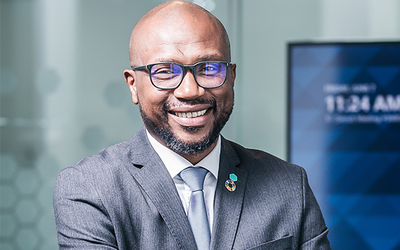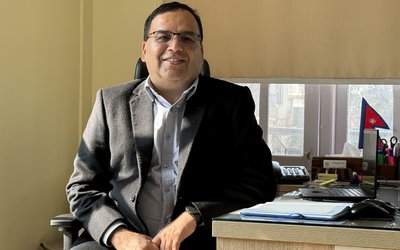More on Interview





At a time when various ministries have been talking about the need to regularize INGOs working in Nepal, BALANANDA PAUDEL, secretary of Ministry of Women, Children and Social Welfare, talked to NEW SPOTLIGHT on policy related issues regarding regulating INGOs. Excerpts:
At a time when various ministries have been issuing conflicting opinions regarding INGOs, how do you look at them as a secretary of a ministry directly responsible for the issue of regulating NGOs and INGOs?
According to the Working Procedures of the Cabinet, it is the sole responsibility of this ministry to regulate the NGOs and INGOs. Even the Social Welfare Council Act clearly mentions about the monitoring issue. According to the act, a separate Social Welfare Council is constituted to regulate and monitor the aspects of NGOs and INGOs.
How do you see the situation now?
Frankly speaking, we are yet to prepare any framework to streamline NGOs and INGOs. It is a prerequisite to develop a framework to identify the areas to encourage INGOs and NGOs and prioritize their programs. It is true that Nepal government is yet to have any framework to guide and support INGOs and NGOs in implementing projects.
Why do you need a framework?
By making a framework, we can check the gaps and overlaps in the projects and programs implemented by INGOs and NGOs. The ministry has already directed Social Welfare Council to develop a working framework which guides and facilitates INGOs and NGOs.
Why do you need it?
At present, there are many gaps and overlaps. According to existing Local Governance Act 1999, NGOs and INGOs which want to implement the development projects at local levels need early permission from concerned DDCs, Municipalities and VDCs. Such programs need to be included in local development planning. Although it is legally mandatory, practically it is not possible to do so.
How do you see the facilitation committee?
There is also a Project Facilitation Committee under the governorship of joint secretary of ministry. The committee includes the members from various other ministries. This committee approves the programs and projects presented by the INGOs based in Nepal. There is no framework even for the committee. We don't have a framework to coordinate INGOs. Such framework must be guided by periodic policies, rules and regulations of the country. It should prioritise interventions and resources. Even NGOs and INGOs will welcome such implementing framework.
How do you look at the monitoring and evaluation aspects?
There are also lapses in the monitoring and evaluation part. We are unable to monitor and evaluate the performance of NGOs and INGOs properly. Social Welfare Council performs evaluation and monitoring part. However, it is a very ritual work and the government is yet to prepare plans for such programs allocating the budget. The current evaluation and monitoring work is conducted by employees of Social Welfare Council on the basis of the budget allocated by concerned NGOs and INGOs.
We also need to encourage the INGOs to follow the frame work. Evaluation and monitoring should be supported by the government of Nepal under its own priority. I don't think there is any ambiguity and confusion among various ministries. Finance Ministry has its own mandate regarding the resource matter; Ministry of Foreign Affairs might have also some concern. However, so far as overall coordination of NGOs and INGOs are concerned, it lies under the purview of the Ministry of Women Children and Social Welfare.
How do you see the role of INGOs in development?
The government of Nepal is highly appreciative of the work done by INGOs. This is the reason the government is encouraging INGOs to work freely and independently. In some cases, there are some shortcomings and the government is yet to recognize the INGOs role. Overall, the role of INGOs and NGOs are highly recognized by the government. The government wants to encourage INGOs and NGOs to be transparent and replicate their work in different parts of the country. We will fully cooperate with INGOs.
Anything else on the role of INGOs?
We see NGOs and INGOs as the arms to carry out the mandate of the government. The INGO sector is one of the strong and effective arms of the government to reach to the people. There is no confusion and doubt in terms of our policies on that. The government is like a ship and it cannot go to every nook and corner of the country. Thus, it needs smaller boats, that is, NGOs and INGOs to reach the nook and corner of the country. Without the support of INGOs, we cannot reach to the people. In many instances, INGOs have been working even in the areas where government is yet to reach. We need to encourage and support INGOs to implement their programs in the priority sectors. We have to develop certain framework.





